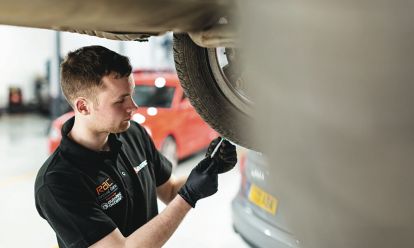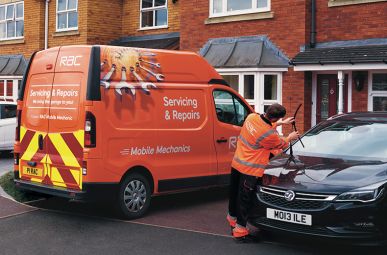A clutch is the mechanical device used in vehicles to engage and disengage the power flow between the engine and the transmission.
It is used to change gears and help control the speed of the vehicle.
The clutch is made up of several mechanical components, and keeping it in full working order is very important.
This guide looks at what is needed for a clutch replacement, and what it is going to cost you.
Average clutch replacement cost in the UK
In the UK, the price of a new clutch can range between £500 and £1000.
Clutch replacement can be expensive, but it is a crucial part of your vehicle that needs to be in top working order.
However, this cost can go up or down based on a few key factors, including the make and model of the car and whether other parts need replacing or adjusting (such as the flywheel, clutch cable or hydraulic system).
Also, standard clutches tend to be less expensive than those designed for high-performance vehicles and sports cars.
For anyone looking to have their clutch replaced, beware that other work will likely need to be done on the vehicle. This could come with extra costs.
Service, repair or MOT?
You can trust the RAC with our local approved garages and NEW mobile mechanics.


Average clutch replacement cost by manufacturer
If you are looking for the average cost to replace your clutch, based on make and model, here is a list of pricing.
| Manufacturer | Average price to replace a clutch |
|---|---|
| Audi | £797.47 |
| BMW | £567.19 |
| Citroen | £643.55 |
| Ford | £598.35 |
| Mercedes | £824.13 |
| MINI | £699.98 |
| Nissan | £585.49 |
| Peugeot | £648.39 |
| Renault | £833.56 |
| Toyota | £570.39 |
| Vauxhall | £698.46 |
| Volkswagen | £647.91 |
| Volvo | £743.62 |
The average cost to replace a clutch is around £625.
Source: Fixmycar (April 2025)
Clutch replacement – how it works
Replacing a clutch is a technical job – and something that should be carried out by a mechanic at a trusted local garage.
This is because it requires a high level of experience, expertise and specific tools to successfully complete the work.
This is the process it take to replace a clutch:
- Park the vehicle on a flat surface with parking brake engaged
- Disconnect the car battery
- Raise the vehicle using a jack and stand
- Remove the transmission and clean any fluid
- Also remove any electrical cables and connectors
- Use a transmission jack to remove it from the engine housing
- Lower it to the ground
- Remove the clutch and its components (pressure plate, clutch disc, bolt, flywheel, bearings, etc)
- Reverse this process with the new clutch
Once this is finished, the fluids will need to be topped up and checked for any leaks.
Following this, it is important to carry out a test drive at slows speeds.
Signs your clutch is going
Clutches can be expensive to fix, so knowing when it might be having issues is important – as sorting it before it damages other parts of the vehicle can save a large bill.
Signs your clutch is slipping could help you avoid paying to fix other issues with the vehicle.
Examples include unusually high RPMs, challenge to change gear, a grinding noise from the engine, and a strong burning smell.

RAC sale – up to 33% off*
• Roadside cover from £5.29 a month†
• We get to most breakdowns in 60 mins or less
• Our patrols fix 4/5 breakdowns on the spot










